SPLIT
35 YEARS OF PROFESSIONAL LIFE
Nenni Delmestre reveals what makes her sad about Split, which applause means more to her than the ovations in theater, she recalls her childhood, America, and she has important advice for women
EDA VUJEVIC WRITES
March 3, 2021 3:39 p.m.
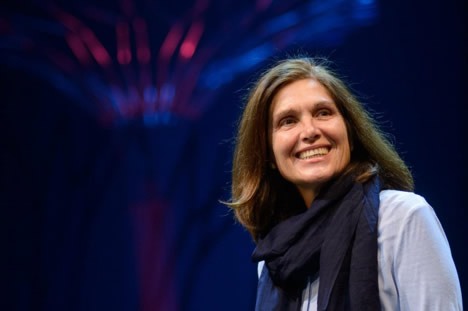
Twenty days ago, the play “Dead Man’s Cell Phone”, by Sarah Ruhl, belonging to the circle of the most intriguing American and world playwrights, premiered on the stage of the Croatian National Theater in Split . The play was directed by Nenni Delmestre, celebrating the 35th anniversary of her artistic career with this opening.
Thirty-five years sounds like a long time. But you, I must say, look too young for such a long career. Are you satisfied with what you have achieved?
I’m not responsible for the way I look after 35 years of professional life, blame it on my mom and dad, and the sports life, ha-ha. I’m never one hundred percent satisfied, and that’s both an advantage and a curse. I am satisfied, though, with the performances where I wouldn’t change a thing even today and which, I hope, have left some trace. I’m satisfied with the creative collaborations shared with many actors and artistic teams from many theaters in Croatia and abroad. And I’m particularly pleased with the collaborations shared with playwrights staging the world premieres of their texts; primarily Elvis Bošnjak , Lada Kaštelan , Darko Lukić, Ivan Vidić , Pavo Marinković …
EDUCATION IN AMERICA
When you came back from America, did you dream of an even brighter theatrical dream?
My theatrical dream might have been even brighter if some international festivals and offers had not been interrupted by the war, but I am not complaining.
You went to America as a very young girl, as a tennis promise, and awarded with a scholarship as a tennis player. First you studied and obtained a degree from a different profession, neither tennis nor theater related.
Yes, I first graduated in Communications Technology. It was an interesting degree which combined television media technology, journalism, and sociology. I graduated with the highest honors and made the dean’s list, and since all my elective courses were related to theater, the head of the Faculty of Theater Arts offered me an academic scholarship and so I continued and received my degree in theater direction. Besides the theoretical and practical knowledge, this degree left the biggest impression in me, the effect of freedom. Namely, my professors didn’t make us clones of themselves, but always encouraged us to analyze and defend our ideas and choices. They taught me that in directing, every choice must have a meaning and a reason, even if it’s not understood by everyone.
What did your parents say when you left both tennis and communications technology? Parents, I think, usually wish for more solid professions for their children than the artistic…
My parents were always supportive, they knew it would end up being the way I wanted anyway. At one point, the possibility opened up for my life and career to go in a completely different direction. My father was one of the pioneers of nautical tourism in the early 1960s. Coincidentally, the New York Times Editor-in-Chief Seymour Topping ended up in our sailboat, the Black Queen, and befriended my father. He knew what I was studying, that I was an athlete, and when the Sarajevo Olympics were being organized, he invited me to his office in the Times and offered me a job. But by then I had fallen in love with theater and turned it down without thinking. I still keep his letters trying to persuaded me to accept. Many times when everything seems to go wrong in the theater, I think “what kind of fool have I been…”
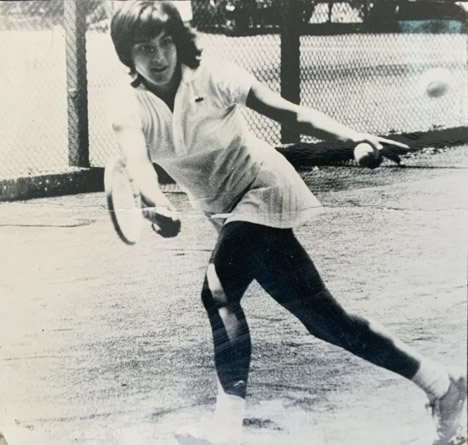
NAILS IN THE SEA
It is less well known that you are the captain of a yacht, that you passed the license’s exam. How did that come about?
My father was competition sailor from early childhood and dreamt of having his own sailboat. And since his dreams were never small, from the money my mom earned making souvenirs and with the help of a friend, he built a 14 meter long iron sailboat. In the early sixties that was a living miracle, and friends from his club “Labud” would throw a bunch of nails into the sea and say, “Look, this is how your iron boat will sail.” However, the sailboat sailed on until three years ago, with me in it since I know of myself. Taking the captain’s exam was just a mere of formality. When I first sailed alone in Palmižana and docked the boat in a really narrow passage between two boats, I got an applause from the sailors who work at the marina, and to me, this meant much more than the ovations at the opening of a play.
Your great-grandfather worked in the theater. Theater is in your blood, but most girls dream of standing in front of the cameras or on stage, and you decided to go behind the scenes. Why? Are you shy?
My great-grandfather Vittorio Del Mestre was a master of gas lighting and he lit our boardwalk “Riva”. I think one of his light poles still stands near the market, “Pazar”. He volunteered in the Italian theater in Prokurative. My father always told me about these valves and handles and how his nono worked the gas lights in the theater, and about his father, my nono Carlo, who finger licked the cream off the cakes the Italian opera singers received from the pastry chefs from Split, and which ended up in my grandfather’s office. Already as a child, watching plays was an incredible excitement for me, but the real passion for theater came only later, at the University. I’m not shy, I played in front of large audiences at the tennis courts in Wimbledon, Paris, Melbourne, Vienna without any problems… but I never saw myself as an actress.
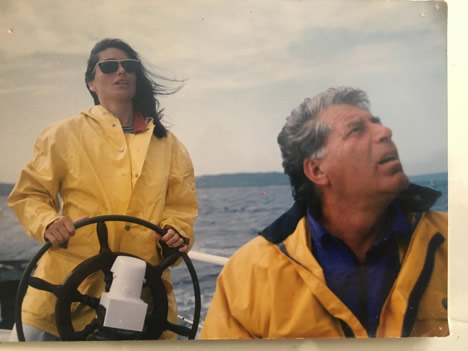
ACTING STARS
Was it hard for you to study in America? It is, after all a foreign language …
In my profession, language is not crucial for communicating with the actors and the artistic team when I work abroad, anyway, everyone speaks English today. Still, it’s nicer to work in your own language. I came back from America because at one point it seemed to me that everything is possible over there, but nothing really matters. I wanted to work in an environment where I could contribute something, and that meant home. Was I wrong, I don’t know!
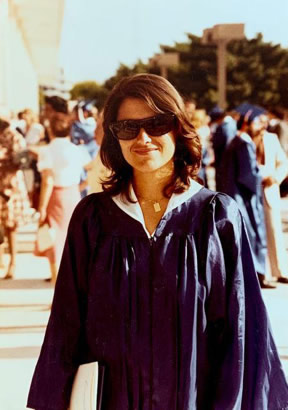
But it dragged you back home …
I missed my parents, family, friends, I missed our Mediterranean, Split’s way of life, when you can go out without any plans, meet people you know and casually end up having coffee, lasting for an hour. I missed being able to hop in my sailboat and sail through Split’s Gate … wherever I pleased. I realized very early on what “quality of life” meant to me.
In Croatia, in the eighties but even today, women were an exception in the world of directing, especially theater. How were you received by the then stars of our theater – Zdravko, Genda, Dvornik, Lepetić, Zoja …?
Zdravka and Genda became my most important collaborators and great friends from the very beginning. We were like some “conspirators” plotting out to create, as Kudrjavcev wrote, a ”new wave” in Split’s CNT, . I arrived with new ideas, which the two of them wholeheartedly accepted because they always wished to expand the boundaries of their acting skills, and so the plays “Fool for Love”, “Adventurer at the door”, “Simon of Cyrene” were born…
With Zoja at the beginning there were some misunderstandings, but afterwards we had great collaborations and in recent years we became very close friends. Unfortunately, I did not have the opportunity to work with Boris, and it was a pleasure to work with Lepetić in “Simon of Cyrene”. From the older generation, I have to mention Milka Podrug Kokotović, with whom I worked in several plays in Dubrovnik and Split and who is a constant source of inspiration because at the age of 90 she’s still one of the most modern and best Croatian actresses.
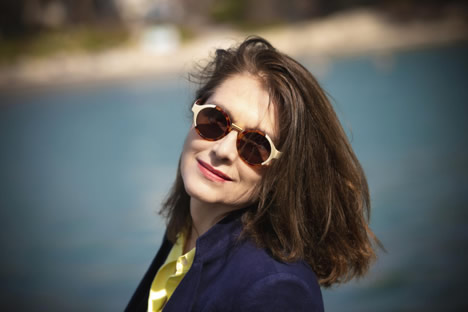
YOUNG ACTORS
Were there any difficult situations?
The hardest thing was to face the preconception and prejudice that if you played sports in a slightly higher level, then you certainly didn’t have time for school, becoming limited and uneducated, which is, of course, nonsense. Also, I wasn’t “somebody’s student” in Croatia and I had to prove myself from scratch, and finally, the fact that I came from America at the time only hurt me, with comments like “what’s so great about America?”
What, in your opinion, distinguishes a great actor or actress from a mediocre one? What are young actors like today?
A great actor, besides knowledge, technique and everything that is implied in this profession, must also have a personality, he must have “weight”. When delivering his or her text, they must be trusted regardless of the style of play they’re playing at that moment. There are all kinds of young actors, but the ones I respect, are the ones who constantly work on themselves at all levels, regardless of whether they are currently engaged or not. I have noticed in recent years that young people, including actors, find it increasingly difficult to receive criticism, correction, instruction. It’s like, everyone’s a genius right away, everyone’s excellent, and we should just praise every one of their attempts and be careful not to hurt their feelings. It doesn’t really work that way, because without criteria there’s no improvement.
What bothers me is that, in my opinion, many have speech issues on stage…
Well, the way an actor or an actress speaks is a reflection of their work, the work of their professors and the academy they attend.
What needs to happen for a show to succeed? Is the audience a factor as well?
Almost everything should match! Plus you must have luck and an audience which understands and reacts. Each play has its own language, its own code. But that code must be understood and accepted by the audience. When I choose a text, I think about whether it’s right for the audience of that particular theater where I’m working, but once I get into a project, I never think of how to please audience’s taste.
DIFFERENT AUDIENCES
You have worked in theaters around the world. What plays do the audience in Split “fall for”? What do audiences in other places “fall for”?
Certainly all audiences are different, but nowhere is the audience a homogeneous mass. The audience in Split is very diverse … Those who attend opening nights are always “restrained” no matter what’s showing on stage. We have an audience that loves comedy, then there are those who will enter the theater only once in their lives because of hits like “The Funeral Dinner”. And we have those who say, “Finally something serious and meaningful”.
We must take all of them into account, but also keeping in mind that we’re a national theater and that our level must always be top notch. What saddens me is the fact that in Split, with such a large university, students hardly come to the theater. In Berlin I watched a very difficult philosophical play that lasted four hours. There were mostly students in the audience, no one left during the intermission, and at the end of the performance they enthusiastically shouted “bravo”. That’s the difference! I think our faculties are educating good professionals but their knowledge of general culture is very poor.
You were a freelance artist for a long time. Would you change anything today? What kind of retirement do you hope for when the time comes?
I was a freelance artist for 12 years, and in 1997 I became a resident director of the Croatian National Theater in Split. I think it’s never too late for a change, but not to change theaters, but to change profession, ha-ha.
To become a real captain, active … To sail …
Ha-ha … Joke aside, retirement is not in my plans, I’ll do what I love as long as it makes me happy and as long as I can.
INDECENT PROPOSAL
Lately, the world, but also this region, has been shaken by scandals related to sexual harassment and abuse of actresses and female students. What advice would you give to women who want to pursue a theatrical career? To be silent and suffer, in the hope that the violence will stop, or to shout and seek justice and respect?
It’s good to talk about it and I would never advise anyone to be silent and suffer violence and abuse. It pains me to listen what some girls have gone through and I give them my full support. But I also think that the whole thing is now politicized and that the boundaries are no longer clear for what sexual harassment, mobbing, bullying is, and what is a regular “difference of opinion,” especially in my job. When someone attacks you seeking an intimate contact you don’t want, then “no” should always mean “no,” and that’s the end of the story. No doubt about it. What I don’t like now is the fact that in the name of that “security” we are losing our freedom. I never considered myself a weak person who had to be looked after by the police and that needed the law to decide who was allowed to look me in the eye.
Have you had any embarrassing episodes of that kind?
Once a powerful director, the director of a theater in the former Yugoslavia, offered me a job in his theater, ending with the sentence: “Come wake me up in my hotel room.” To which I replied ironically, “You just wait for me”, turned on my heels and never saw him near me again. So my advice to young women would be: shout when you need to, but also use all your resources for self-defense.
From some of your plays I’ve watched, two very similar titles have specially remained in my memory, “That Child” and “My Child”. You seem to be prone to family dramas, am I right?
These are two completely different dramas. “My Child” deals with parenting from the perspective of a father who is forbidden to see his own son, and “That Child” deals with the phenomenon of the relationship between children and parents in the modern world. What attracted me to these dramas is the fact that both Mike Bartlett and Joel Pommerat are top writers whose plays are painfully honest and intriguing.
What kind of child were you?
My childhood was spent playing marbles, rolling down the street in my toy wagon, spending the whole summer in a bathing suit, until I started playing tennis, and then there was training, school, tournaments and there was no more childhood. And I can’t wait until there’s no one jumping off the trampoline in Žnjan’s children’s park so that once in my life I can jump for as long as I want.
SUNDAYS AT ZOOM
How much has the COVID year changed you personally? Do you wish for people, audience, friends, socializing …?
I wish a full theater, I want to hug my mom and my friends, I want to travel. Some nice things happened too, because of COVID I connected with a group of great theater professionals from all over the world, we meet in Zoom every Sunday. We have some joint projects, we’re working in one film, and another project is the translations of plays, which resulted in two of Elvis Bosnjak’s plays translated into Hebrew.
What are your plans for the next year or two? Will these be the years “eaten by locusts” given the general crisis?
The “locusts” didn’t eat up my year, because we staged the play “Dead man’s cell phone”, I translated some other plays, I have some plans that are still early to talk about… Although there are still too few people allowed into the theater, I see that the people who managed to buy tickets come to the show and they leave happy. Theater has survived various plagues and cholera, wars and troubles, so it will survive this monster as well.
Our origin is near Udine
What kind of relationship do you have with your family today? Only a few people in Croatia bear your last name. Do you know the origin of the family?
The origin of my family Delmestre is from the vicinity of Udine, they were excellent masters and had a contract with the Beretta factory, making parts for their guns. First they came to Pula, and then to Split. Nono Carlo married my grandmother Katica , born and bred in Split whose family came from Solin in 1589, and her father was the eldest of the three brothers mentioned by Uvodić , known by the nickname of Tarataj .
The other half, my mother’s side of the family, of which I am equally proud of and which is closest to my heart, is originally from the country. Grandmother Jakica and grandfather Ante Jurić came to Split at an early age. I did not meet Dida because he died early, I was raised by my grandmother and for me she was the greatest authority. At the same time, only now I see how much influence my parents, my father Nenad and my mother Tonka , had on me , they were always full of innovative ideas, always dreaming, creating, building. I now know that my courage to take risks comes from them.

